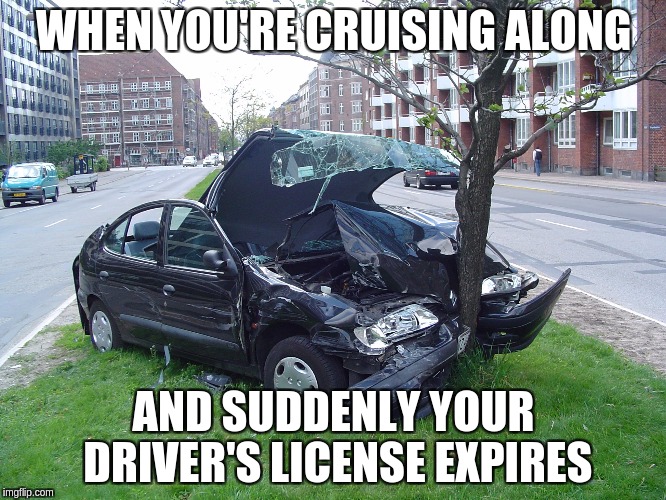One of the many sad facts about New Zealand’s democracy is that most people don’t really understand how the system works, or what the election night results really mean.
Agent Orange to the rescue! Not A Party, not a problem.
I’m going to try to explain what just happened by way of an analogy.
I’m going to compare Not A Party’s performance on election night to National’s performance on election night, and the analogy I’m going to use is comparing the number of non-drivers to the number of drivers cruising along in blue cars. (Blue being the colour that represents the National Party.)
So I’ll give you the results to compare first and then show my working.
There’s five different ways we can spin the stats.
1. Seats in Parliament using the Sainte-Laguë allocation formula.
National 48.3%
NAP 0.0%
There are 120 seats in Parliament. 58 of those seats go to National. By analogy, suppose that there are 120 cars currently travelling on the road. 58 of those cars are blue. There are no non-drivers on the road. There are no stoned drivers on the road either, they parked up for a smoke, and Gareth Morgan also pulled over, he hit a cat and stopped to make sure that it was really dead. 58 out of 120 is 48.3%.
2. Percentage of actual votes by those who actually voted.
National 46.0%
NAP 0.0%
The analogy is to all cars on the road, before they park up, pull over, or break down. National got 46% of the party vote, 46% of the cars on the road are blue. The ALCP got 0.3% of the vote, 0.3% of the cars are travelling at 65 kph on the open road. Gareth Morgan hasn’t run over any cats yet. So in this second calculation non-voters and non-drivers (including drivers behind the wheels of stationary vehicles) aren’t included in the numbers.
3. Percentage of actual votes by those who were enrolled to vote.
National 36.2%
NAP 21.2%
This calculation includes all drivers who own cars, not just those drivers who own cars and are on the road. NAP enters the race, so to speak. 21.2% of drivers with cars didn’t go out on the road, they stayed home, their cars stayed in the garage or were parked outside on the street. 36.2% of all cars are blue and on the highway.
4. Percentage of actual votes by those who were eligible to be enrolled to vote.
This calculation includes all drivers, including those who don’t currently own cars. 33.0% of all drivers were driving on the road and driving blue cars. 28.2% of all drivers weren’t even driving that day, because they decided not to or simply couldn’t because they fell on carless days.
National 33.0%
NAP 28.2%
5. Percentage of actual votes by those who were eligible to be enrolled to vote, including wasted votes in NAP’s non-vote tally.
National 33.0%
NAP 31.3%
This is the same number as above for National. 33.0% of all drivers were driving on the road and driving blue cars. But the grand total for the disenfranchised is 31.3%. By analogy, 31.3% of all drivers weren’t even driving that day, because they decided not to or simply couldn’t because they didn’t even have a car, or they were driving but had pulled over, parked up, or broken down on the side of the road.
So that’s all the important numbers.
Now, the burning question is, who won the election, the National Party or Not A Party?
National did, we was robbed! Any way you spin it, there were more people who voted National than people who were in some way disenfranchised. NAP is under no illusions.
Now to show my working.
Here are some official stats from the Electoral Commission.
The following are estimated population statistics as at 30 June 2017 based on projections from 2013 census data, and actual enrolment statistics as at 22 September 2017 (the day before the 23 September general election). The dates don’t quite match up but there were
3,569,830 people eligible to enrol
3,252,269 people actually enrolled
91.1% of people eligible to enrol were actually enrolled
Here are some more stats from the Electoral Commission.
Voter turnout for the 2017 General Election is estimated to be 78.8% of those enrolled as at 6pm Friday 22 September. This compares with a final 77.9% turnout of those enrolled in 2014.
So estimated (by the Electoral Commission) voter turnout was 78.8%.
78.8% of 91.1% is 71.8% of those eligible to enrol to vote actually enrolled and voted.
So that’s 28.2% of those eligible to enrol and vote that didn’t actually vote.
Now let’s look at the percentages of those that did actually vote. Obviously, this doesn’t include non-voters. Non-voters were exactly 0.0% of those who voted.
More stats from the Electoral Commission.
Of those who voted, 46.0% voted National. 35.8% voted Labour, 7.5% voted NZ First, 5.9% voted Greens, 0.5% voted ACT. That adds up to 95.7%. The remaining 4.3% of voters voted for parties like ALCP and TOP who failed to reach the 5% threshold under the MMP voting system and didn’t get any electorate seats. That means that those 4.3% of votes are wasted, because they don’t get input into the Sainte-Laguë formula which is used to allocate actual seats in Parliament.
There are 120 seats in Parliament. Projected seats are 58 to National, 45 to Labour, 9 to NZ First, 7 to the Greens, 1 to ACT. Note that 58 seats out of 120 is 48.3%.
Please note that the results published by the Electoral Commission on election night are preliminary results. Final results after special votes are counted may change the National Party’s percentages, but not NAP’s. There was an election and the government got elected. Deal with it.





















